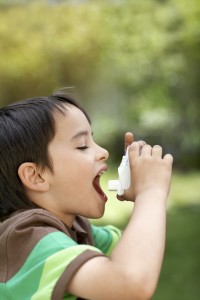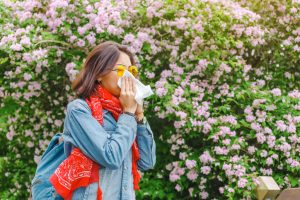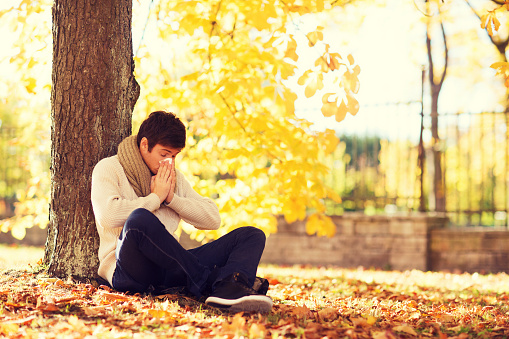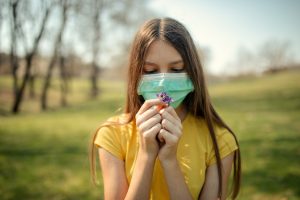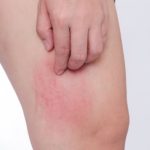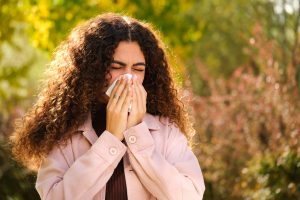 As the spring season progresses, you or someone you know may experience a sore throat, runny nose, or irritated eyes. These symptoms are common during this part of the year due to seasonal allergies.
As the spring season progresses, you or someone you know may experience a sore throat, runny nose, or irritated eyes. These symptoms are common during this part of the year due to seasonal allergies.
It may not always be clear when your symptoms are the result of allergies or an illness such as a viral infection. For many people, seasonal allergies can present in a similar way as the common cold. The difference is that allergy symptoms are caused by allergens (substances that you’re allergic to).
When you come into contact with an allergen, your immune system treats it as a harmful intruder and releases histamines, leukotrienes, and prostaglandins. These chemicals are what cause symptoms such as nasal congestion and irritation to occur. In severe cases where these allergens become trapped in the nasal passage or throat, you may experience an asthma attack and have difficulty breathing.
Certain allergens are more common during different parts of the year. During the spring and early summer seasons, pollen from trees and grass is most prevalent. Mold is more common during the fall as it grows on plants, trees, and other dead or decaying matter, but it can also develop during other parts of the year in moist environments (including buildings that have experienced flooding).
You may not realize when you’ve been exposed to an allergen, particularly airborne substances such as pollen. Allergy tests (which may involve drawing your blood and sending it to a laboratory) can help to identify these allergens; this is a particularly important step to take if your allergic reactions are severe or frequent. This also helps you determine what kind of medication is needed to control your symptoms.
If you believe you may have a seasonal allergy and are experiencing unpleasant, disruptive symptoms, you can get an allergy test and treatment at Flushing Hospital Medical Center’s Ambulatory Care Center. To schedule an appointment, please call (718) 670-5486.
All content of this newsletter is intended for general information purposes only and is not intended or implied to be a substitute for professional medical advice, diagnosis or treatment. Please consult a medical professional before adopting any of the suggestions on this page. You must never disregard professional medical advice or delay seeking medical treatment based upon any content of this newsletter. PROMPTLY CONSULT YOUR PHYSICIAN OR CALL 911 IF YOU BELIEVE YOU HAVE A MEDICAL EMERGENCY.


